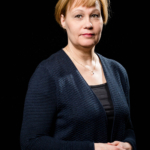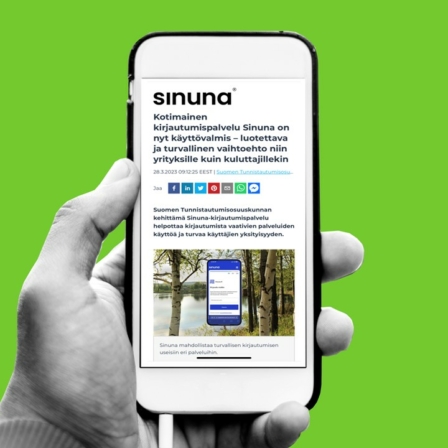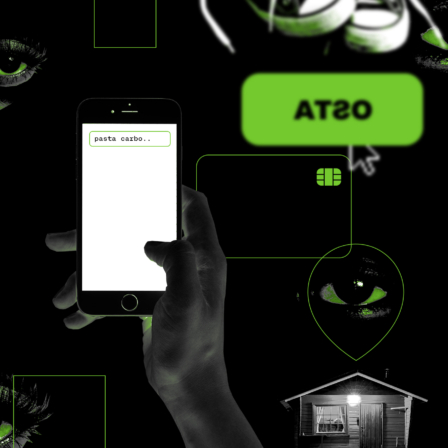The future of the European economy and European democracy is threatened by the lack of transparency in the data economy and the concentration of digital power in the hands of a few. At the same time, these threats expose us to inconspicuous influence through information, endanger our privacy and erode our cyber security.
These conclusions can be drawn from Sitra’s recent Digipower investigation, which also indicates that the digital giants do not comply with the EU’s General Data Protection Regulation (GDPR) General Data Protection Regulation (GDPR) Regulation (EU) 2016/679, the European Union’s ("EU") new General Data Protection Regulation ("GDPR"), regulates the processing by an individual, a company or an organisation of personal data relating to individuals in the EU. Open term page General Data Protection Regulation (GDPR) . The aim of the investigation was to study how a group of test subjects, consisting of influential decision-makers in society, can be influenced by data collected about them. At the same time, the study tracked the parties that collect data about us when we use various online services.
Published on 24 May 2022, the final report presents the results of the Digipower investigation and explains the various dimensions of digital power. The report also includes a set of recommendations for making the data economy fairer and more transparent and democracy more resilient.
For example, the recommendations state that the rights, capabilities and opportunities for action of individuals should be strengthened in our increasingly complex society and information environment. Reining in the power of the digital giants, enhancing competition between companies and improving the functionality of the data market, in turn, would help distribute the benefits of the data economy in a broader and fairer manner than at present.
“The first step to address the situation is to increase our understanding of this new economy,” says Kristo Lehtonen, Director of the Fair Data Economy theme at Sitra. “In addition, there is a need to reform structures and develop the skills of individuals. The Digipower investigation also supports the view that new regulations, such as the Digital Services Act (DSA), are necessary. Societies are only just starting to recognise that the major social media platforms and digital marketplaces are part of the critical infrastructure in society.”
The escalated security situation underscores the significance of digital education and information literacy According to the Digipower investigation, the lack of transparency in the data economy in its current form poses a threat to our privacy, erodes trust and exposes all of us to influence through information. The digital giants, such as Google and Meta, still do not fully comply with the provisions of the GDPR owing to issues such as a failure to respond to legally valid requests for information. An information request submitted by Filomena Chirico, member of the cabinet of the Commissioner for the Internal Market, Thierry Breton, constituted an exception.
One practical example of supporting individual skills and digital education is Sitra’s partnership with the independent Finnish fact-checking service Faktabaari. The partnership contributes to the development of Finnish competence in the field of fact checking and the teaching of digital information literacy. The significance of digital education has been further increased by Russia’s offensive war and the escalated security policy situation. Faktabaari participates in the EDMO-NORDIS (European Digital Media Observatory – Nordic) consortium, which is a key EU-level programme that studies and promotes the fight against disinformation. The consortium includes fact-checking organisations and universities from four Nordic countries. The Finnish participants in the consortium are Faktabaari and the University of Helsinki.
“Platforms and their algorithms hold significant power over what information is delivered to individuals,” says Veera Heinonen, Director of the Democracy and Participation theme at Sitra. “This power can also be used to manipulate people; for example, by distributing false information. This is why we need to work together to promote digital information literacy so that people will continue to have the ability the form their own opinions and arrive at their own decisions.”
Further information
The publication: Tracking Digipower – How data can be used for influencing decision-makers and steering the world
The topic was discussed in the Faktabaari forum on 24 May 2022. The recording available until 9 June 2022.
Sitra’s Digipower investigation was conducted between autumn 2021 and spring 2022. The purpose of this unique study was to identify new ways of exercising influence and improve the transparency of the use of data. The investigation was carried out in co-operation with the data analytics company Hestia.ai.
The four-year Digital Power and Democracy project, which began in April 2022 under Sitra’s Democracy and Participation theme, will continue the work initiated in the Digipower investigation to provide insight into data’s significance to society, increase the transparency of digital power and create a stronger understanding of the transformation of the information and media environment. The project will continue to develop Sitra’s Digiprofile test. The collection and subsequent disclosure of data was previously investigated in the Digitrail study. Sitra has also published a report on the transformation and future of the media environment entitled Media influence on society (in Finnish).














